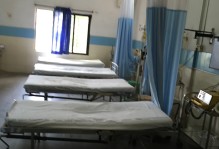Finally Home!
After a year of challenging courses, long-lasting friendships, lengthy applications, and countless people swinging into the academic and dorm hallways back and forth, I AM FINALLY HOME!
Today, I thought I would tell you a story of how I ended up writing an interdisciplinary thesis rather than a regular one, as well as why it makes sense to do so in the Physics Department and not in the Neuroscience or CAMS Biomath Program.
Before I first arrived at William & Mary, I was very sure of majoring in neuroscience. Behind this confidence were the worries that my family was expressing since I may not be marketable enough for a job if I do not major in computer science. Even my multiple disabilities made choosing a major and career path the most stressful task I had ever done. I ended up pursuing a double major in neuroscience and computer science for the sake of having several options at hand post-graduation.
From a chemistry teaching assistant to a neuroscience research assistant, I sought multiple opportunities that influenced my long-term goals after graduation. The teaching assistant position was the closest that I could find besides faculty-led research, but it gave me some experience of what it is like to help undergraduates during graduate school. Before heading to George Mason University for an internship, I won the Grace Hopper Celebration scholarships to travel to Houston and be more inspired about computer science and its role in other disciplines, including neuroscience. I hoped to attend the Grace Hopper conference again to present a bioinformatics project that I completed as a George Mason intern.
Unfortunately, my potential for taking more computer science courses was approaching toward the end, and most biomath and neuroscience professors were not into taking me in for research projects after the fall 2018 semester. I ended up asking several professors in the overall STEM field to be my honors advisor, and every one of them that I approached refused to take me in. Additionally, one of my academic advisors strongly believed that doing an honors thesis and completing the computer science major at the same time would be too stressful. As an interdisciplinary studies major, I took time to think about myself, and I chose to continue with the honors thesis and minor in computer science.
I never lost all hope in finding an honors advisor because I saw the honors thesis as a vital opportunity to showcase what I have learned all throughout my undergraduate years. Fortunately, with the help of my Electronics professor, I found someone who was always open to anything scientific and will be involved in the engineering capstone. Despite my struggles in gaining research experience related to computational neuroscience, I have the right skills and training to get the job done. The task of developing sensors to prevent falls among senior citizens should not be a problem since I worked hard in my first engineering courses on campus. Now is the time that I know very well about biomedical engineering and the design thinking process because falls prevention is the focus of the Center for Balance and Aging Studies under the Kinesiology Department, and we need to find ways to make measurements more readable especially in healthcare settings.
Before I sign out, here is a list of tasks that I hope to complete in the two weeks before returning to campus:
- Be familiar with the tasks assigned by my honors advisor.
- Read more about and solve exercises on analog and digital circuits.
- Review the lessons from my Electronics and Engineering Design lectures.
- Search for and read peer-reviewed articles on fall prevention and its sensors.
- Be familiar with human anatomy and physiology.
- Read about the Center for Balance and Aging Studies as well as the Department of Kinesiology and Health Sciences in general.
- Have a scientific and technical writing handbook handy.
- Develop a note-taking and file-organizing system for the whole honors experience.
- Set up the actual honors document and work on the acknowledgments section.
- Create a 12-month schedule for balancing my thesis, coursework, appointments and other activities.
- Reflect upon the timeline I made when applying for the Charles Center Scholarship.
- Purchase new school supplies and prepare to move to Chandler Hall! Do you all like to hear about backpacking bags? 😀
I would like to thank Dr. Nelson for assisting me in the process of finding the right honors advisor as well as Dr. Cooke for giving me the chance to work extremely hard in order to overcome my academic obstacles in computer science. Best wishes to all the Summer Honors Fellows in the Class of 2020! 😀




No comments.
Comments are currently closed. Comments are closed on all posts older than one year, and for those in our archive.